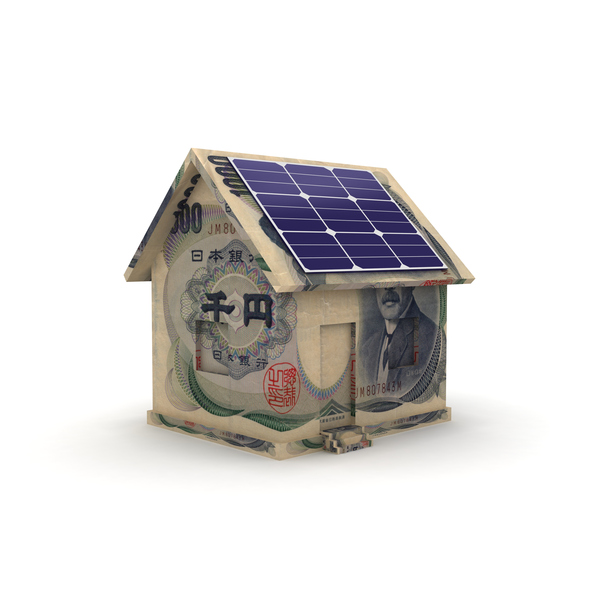America Needs Cops on the Trade Beat
 The Trump Administration placed tariffs on imported washing machines and solar cells this week, provoking wailing and gnashing of teeth worldwide.
The Trump Administration placed tariffs on imported washing machines and solar cells this week, provoking wailing and gnashing of teeth worldwide.
The same over-the-top beating of breasts can be expected if the administration penalizes steel and aluminum imported from countries that violate trade regulations.
Every time the United States enforces trade law, the recrimination starts. America, the free traders say, has no right to shield its domestic manufacturing from the onslaught of unfairly traded imports. There should be no cops on the trade beat, free traders say. It should be the Wild West when it comes to international trade, with the last factory standing the winner, no matter how many trade rules it defied to get there.
American manufacturers – including those that make steel, aluminum, solar panels and washing machines – can compete and win against any challenger in the world when the contest is fair, when all firms that export follow trade rules. But American manufacturers lose when foreign producers export underpriced products after receiving loans that don’t have to be paid back, government-subsidized raw materials and other massive state aid.
American manufacturers shouldn’t be patsies in a rigged game. That’s why they are demanding trade law enforcement. They’re not seeking protectionism, which is shielding domestic manufacturing from fairly traded imports. Instead, they want prosecution, which is punishing trade violators whose cheating destroys American manufacturing and jobs.
China, probably the most flagrant trade rule violator in the world, was among the first to cry “protectionism” after the Trump administration announced the washing machine and solar panel tariffs on Monday. Chinese president Xi Jinping’s chief economic advisor, Liu He, said at Davos this week that his country stood against protectionism and for globalism.
Sure, China wants globalism after its trade violations have destroyed every other country’s industrial base, leaving the Asian giant standing as the only producer globally.
And it’s close to achieving that in the manufacture of solar cells and panels after more than a decade of trade violations. China issued a renewable energy law in 2005 including measures to promote solar manufacturing. Then in 2010, the China State Council listed renewable energy as one of seven industries eligible for special government incentives and loans.
Before China began giving solar manufacturers special perks in 2005, its share of global production was 7 percent. Now, it makes 60 percent of the world’s solar cells and 71 percent of solar modules.
In 2011 the U.S. Commerce Department determined that China was improperly subsidizing its solar producers and that they were selling panels and cells in the United States for less than fair market value, both of which violate trade rules.
As a result, the United States imposed penalties on the imports. Chinese manufacturers ducked the tariffs by moving production to Taiwan. When American producers asked the Commerce Department in 2013 to deal with this dodge, Chinese companies moved production again.
The Commerce Department concluded that from 2012 to 2016 imports of Chinese solar cells and panels grew 500 percent and the price declined 60 percent, bankrupting and driving out of business American producers. Between 2012 and 2017 – a period of just five years – 25 American solar manufacturers closed. And now, another has shut down and declared bankruptcy.
Last May, two U.S. solar companies asked the U.S. International Trade Commission (ITC) to investigate. The ITC recommended tariffs even higher than those that the president ultimately imposed this week. They penalties are worldwide this time, preventing Chinese companies from evading them by shifting production again.
This kind of trade law flouting by China is exactly what is ravaging the American aluminum and steel industries.
Twenty years ago, there were 23 aluminum smelters in the U.S. Now there are five.
Similarly, in the steel industry, thousands of good, family-supporting U.S. jobs were lost and mills and parts of mills closed as China ramped up production, flooded the world market and drove down prices. Between 2000 and 2014, Chinese steel production rose 540 percent. U.S. production, a mere fraction of the Asian giant’s, fell 13 percent.
As with solar, China put government money into its aluminum and steel industries, improperly tipping the trade scales in its favor. And as with solar, when U.S. aluminum and steel companies won trade cases, some Chinese producers moved or falsely marked products as made elsewhere to skirt American tariffs. The European Union’s anti-fraud office determined the same thing – that Chinese steel was shipped through Vietnam and given fake certificates of origin to evade EU tariffs.
At just about the same time the solar and washing machine trade cases were filed last year, the Trump administration announced it would investigate whether the damaging effects of unfairly traded steel and aluminum were threatening national security. If so, the administration could impose import quotas and tariffs. Initially, Commerce Secretary Wilbur Ross said these investigations, under Section 232 of the Trade Expansion Act of 1962, would be completed by June 30, 2017.
Integral to every jet, submarine and military weapon, steel and aluminum are vital for defense. Infrastructure is part of national defense as well, from interstate highways to pipelines. The inability to produce these metals in sufficient quantities and qualities domestically jeopardizes national security.
The Commerce Department report was delayed for months, during which time foreign producers flooded as much steel and aluminum as they could into the United States before the anticipated tariffs. Steel imports rose almost 20 percent. Aluminum and bauxite imports rose nearly 32 percent.
The Commerce Department finally delivered the steel report on Jan. 11 and the aluminum report on Jan. 19. Neither was made public, and the administration can, under the terms of the law, wait another 90 days to act. White House Deputy Press Secretary Lindsay Waters said the administration would announce its decision at an appropriate time.
That time is now. It is great that the administration punished the trade-violating exporters of solar products and washing machines. The American steel and aluminum industries and workers want that same enforcement immediately from the nation’s top trade cop.
***
Photo from alexsl/Getty Images


